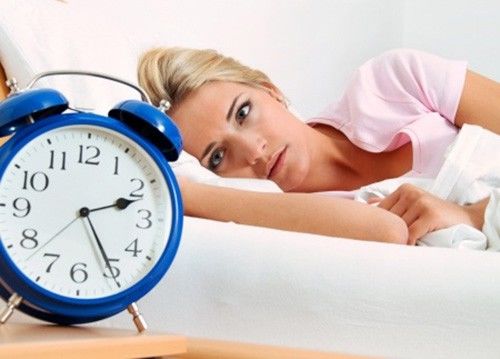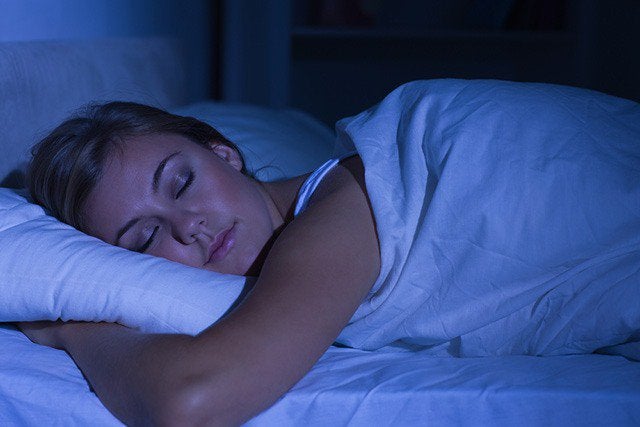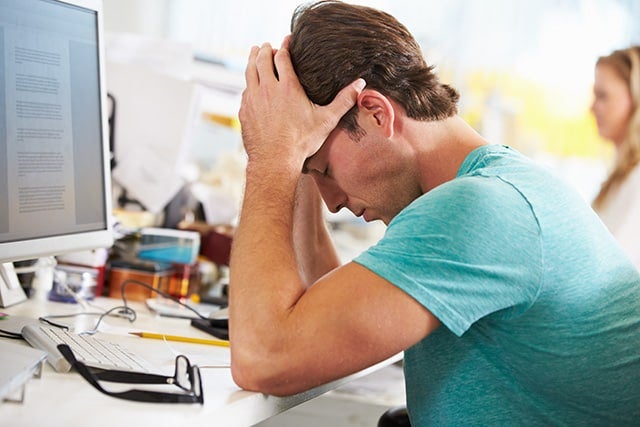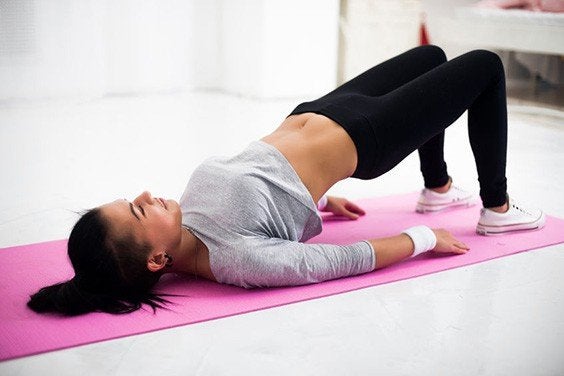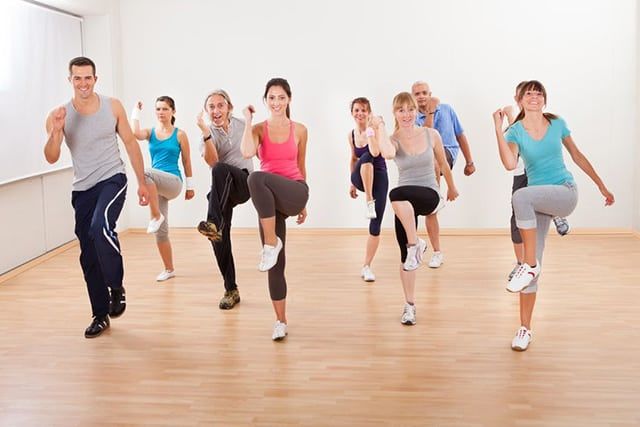Insomnia can be defined as a difficulty in falling asleep or staying asleep. Those who suffer from insomnia will often feel dissatisfied with their sleep and may feel fatigued, have low energy, difficulty concentrating, and more. There are several things that can be done to increase the quality of your sleep, and one natural way is to exercise. That’s right! You can help ease your insomnia or even cure it just by exercising. It sounds far-fetched, but it’s really not. When you start exercising, you will notice that you feel better and that you’re sleeping better at night as well.
You may want to read: Insomnia Statistics – A List Of 16 Eye Opening Stats
Insomnia Explained
Insomnia is a debilitating condition that leaves you completely drained of energy and very cranky, trust me on this. There are as many as 30% of adults who suffer or complain of insomnia symptoms, which is a fairly large number if you stop and think about it. This disorder makes it difficult to fall asleep, and it can cause you to wake up too early in the morning and not being able to get back to sleep. It can have an effect on your mood and energy level as well as your health and quality of life. There are actually three types of this disorder:
Acute Insomnia
This is an occurrence that only happens once in a while. It can be caused by certain life issues such as stress or bad news. Those who experience this have either just lost a loved one, are having relationship issues, or they’re very stressed with life. This will usually resolve itself without any kind of treatment.
Transient Insomnia
This is a non-frequently occurring type of insomnia. This can torment you for up to three nights and then dissipate without any intervention. This is most likely caused by stressors or discomfort coming from within the bedroom such as noise, light, or temperature. Jet lag is a prime example of this type of insomnia.
Chronic Insomnia
You have to experience three or more nights of this in order to classify yourself as a chronic case. This disrupted sleep can last weeks or months. It can have many causes which can include environmental changes, less than perfect sleep habits, shift work, and other clinical disorders and medications. Those who suffer from this could also have some other type of issue. Depression and anxiety seem to be a huge factor in this. Those who suffer from psychological issues have more of a difficult time falling asleep.
Symptoms of Insomnia
There is quite a long list of insomnia symptoms. Some are clear as day, while others go unnoticed because of how uncommon they are. Check out these symptoms, do you experience any of these?
- Lack of focus and concentration
- Depression & anxiety
- Irritability
- Tired after waking up
- Lack of coordination
- Daytime fatigue
- G.I. Problems
- Tension headaches
- Not being able to fall asleep
- Finding yourself wide awake earlier than usual
- Not being able to fall back to sleep
How Exercise Affects Your Sleep
A small study published in the Journal of Clinical Sleep Medicine documented a phenomenon as to how exercise in a long run can affect people who have difficulty in sleeping.There were two groups of women who participated in the study: Those who have difficulty sleeping and those who don’t. When the study was started, it’s been noted that those who have difficulty sleeping don’t immediately reap the benefits of a well-deserved sleep after the exercise, compared to those who are otherwise “healthy,” which reported sleeping soundly thereafter. It’s not clear as to why there’s an apparent difference to each groups’ response to the activity, but it has been attributed to the condition that deprived them of sleep in the first place.
However, at the end of the study, both groups eventually reported experiencing a good night’s rest. And thus, it was shown that those who exercised for about 30-minutes three or four times per week found themselves sleeping better. Combined with good sleep habits, exercise helped those with insomnia longer and more efficiently than those who only worked on their sleep habits alone.
Improves Quality of Sleep
Engaging in physical activities can affect how good you sleep at night, but you have to be mindful of the time of the day you choose to exercise, though. I’ll describe more of the details further below but make sure to do the activity 4-5 hours before bedtime. A good sleep is marked when you are able to reach a deep sleep– it is the time when your body tries to repair itself.
Increases Sleep Time
As well as improving your quality of sleep, exercising can also help increase how long you sleep. Exercising expends energy, which helps you feel more tired and ready to go to sleep at the end of the day. Usually, when you are tired due to a good exercise, you’ll sleep comfortably and will less likely be disturbed easily.
Reduces Stress & Anxiety
Nobody likes stress or anxiety. And a regular routine exercise can help reduce your stress level, which can be a very common cause of sleep issues, including insomnia. It is also a great remedy for anxiety. Just five minutes of exercise can trigger a response on your body to relax. With that in mind, you can try breathing exercises or yoga. Yoga is helpful for the mind and body as well as stretching to help lower cortisol level and reduce blood pressure.
Reduces Stress & Helps Insomnia & Other Disorders
Exercise, especially aerobics can greatly help those who have insomnia since activities like it can be a natural relaxer. But as mentioned in the study, in order to experience the benefits of exercise so that you’ll able to sleep soundly, you need to exercise regularly and make sure you stick to a good routine.
You may want to read: Does Exercising at Night Affect Your Sleep?
How Much Should You Exercise?
The National Institute of Health recommends exercising for at least 150-minutes per week for healthy adults. That would equal to at least 30-minutes per day for five days. Don’t exercise too much, however, as it could actually make your sleep issues even worse, leading to exercise-induced insomnia. It is important to note that one of the first symptoms of overtraining is insomnia, so make sure you’re watching how much you exercise.
Cooling After Exercise to Sleep
When you exercise, your body temperature rises. After it rises, it will begin to fall and continue to do so for around 4-hours. Sleeping in a cold room is better because of the way it induces sleep. It should be anywhere between 60 and 67 degrees for optimal sleeping. It is possible that your room is cool enough, but you just aren’t cooling down on the mattress you have. Try a cooling mattress pad to get your body temperature to drop as well. I have had much success with this and I suggest you try it as well.
Exercise Strategies
Try a morning jog if you want to find yourself sleeping more soundly.
This gives you that extra boost you need to go into a deep sleep at night. Avoid running at dawn, though. Your muscles and joints are the most vulnerable to strain at this time because your body temperature is still low.
If you want to do a fat-burning exercise, do it before breakfast.
If you don’t eat, it helps burn more fat. After your routine is when you should eat breakfast with 50% carbs and 50% protein. This keeps your metabolism in tip-top shape and helps you take advantage of your body’s natural fat-burning rhythm. A late-day workout can help control your appetite, making it easier to not overeat in the evening.
Sign up for a community sport that plays at dusk, like baseball or softball.
Both you and your teammates will benefit from performance, fun, and a boost in mood.
If you’re looking for a muscle strengthening routine, consider an afternoon workout or early evening.
This is when your performance will be at its peak. The worst time to do this training would be in the morning when your body temperature is low since your muscles and joints are vulnerable.
Exercising too closely to bedtime can interfere with your sleep.
It can leave you feeling energized rather than tired, which will delay your sleep transition. Your body temperature is going to remain elevated for around four hours after you finish your routine. Higher body temperatures also interfere with sleep. So make sure that you exercise at least 4-hours prior to bedtime for maximum results. When your body temperature starts to drop, that’s when you will start to feel drowsy and when you should hit the hay.
Yoga consists of relaxing poses and stretches, which can help calm our body and put it in a state of relaxation.
This method is super helpful if stress is what’s keeping you awake at night. Those who exercise using yoga techniques daily for eight weeks are very likely to start falling asleep faster while increasing the amount of sleep time in total, so maybe this will benefit you.
Conclusion
It’s a good idea to start an exercise routine if you want to sleep better. Insomnia is no joke, it’s a very serious condition that can leave you walking around like a zombie. If you suspect that you are suffering from this condition, make sure to talk to your doctor about a healthy exercise regimen that will work best for you and your condition(s). Exercise for insomnia may not work alone, so it might be wise to ask your doctor about alternative treatments as well.

